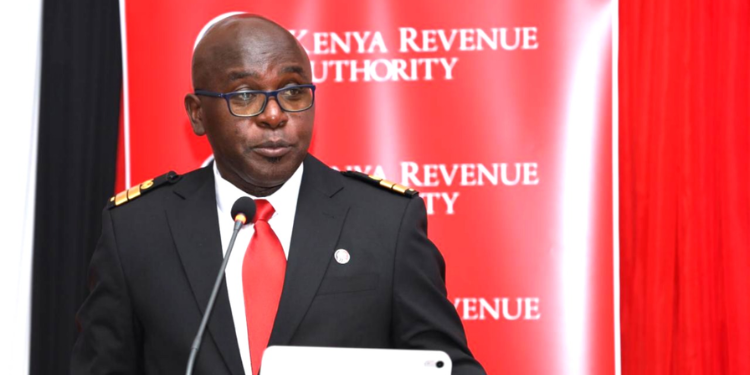Kenya’s tax dilemma runs deeper than numbers and revenue targets—it is fundamentally a question of trust. In his State of the Nation Address on November 20, President William Ruto acknowledged this reality, pointing out that tax compliance cannot improve unless citizens believe in the integrity, fairness, and value of the tax system.
Speaking before Parliament, the President stressed the need to expand the tax base in an equitable manner while easing the compliance burden on ordinary Kenyans and businesses. Automation and digitization, he noted, are central to reducing inefficiencies and sealing revenue leakages. “Every shilling of national revenues matters and must be used to deliver maximum value to Kenyans,” he said, reiterating that transparency and accountability are essential pillars of a credible tax regime.
His message reinforces a truth that experts have long emphasized: people are more willing to comply with tax obligations when they clearly see how their money is used and when they feel the system treats them fairly. Ethical tax practices within the private sector are equally vital in building a culture of compliance.
Communicating Tax in a Diverse Media Environment
Kenya’s media ecosystem—rich, varied, and rapidly evolving—provides the Kenya Revenue Authority (KRA) with a broad set of tools for public engagement. Efforts to rebuild trust in the tax system hinge heavily on how effectively tax information is communicated.
Traditional outlets remain a powerful force. Radio, especially vernacular stations, is central to reaching rural communities and low-income urban households. Through interviews, Q&A sessions, and awareness campaigns, these channels provide a platform for citizens to directly engage with taxation issues.
Television and print also play an important role, offering in-depth stories, educational features, and explanatory inserts that demystify tax processes. These platforms make it possible to unpack complex concepts, such as tax brackets or deductions, in a format the public can absorb at their own pace.
The Growing Influence of Digital Platforms
Beyond traditional media, online platforms have become indispensable. News websites, blogs, and opinion platforms now feature regular tax-related content—from updates on policy changes to personal experiences with compliance processes. Influential writers, digital commentators, and tax professionals often contribute explainers, analyses, and commentary that resonate with younger and digitally active audiences.
Social media, in particular, has opened new pathways for engagement. KRA’s presence across platforms—sharing tax tips, posting reminders, publishing visual explainers, hosting live discussions, and responding to questions—has helped cultivate a more interactive relationship with taxpayers. Content tailored for younger users, including skits and challenges, has proven effective in breaking down the stereotype of taxation as dull or overly technical.
The Trust Gap: Awareness and Literacy Still Low
Despite these strides, gaps remain. A significant proportion of Kenyans—42 percent, according to recent findings—still struggle to understand tax information. Technical jargon, legalistic language, and complex processes often alienate many citizens.
This is where collaboration becomes critical. Civil Society Organizations, academia, community groups, and the media all play a role in simplifying tax literacy. Incorporating practical tax education into school curricula, colleges, and TVET institutions can build long-term understanding. Community barazas, local radio discussions, and grassroots outreach can reach audiences that mainstream channels may overlook.
Strategies to Strengthen Tax Awareness
A robust public engagement strategy requires multiple approaches, including:
Local Radio: Broadcasting tax information in local languages to ensure a clear understanding across diverse communities.
Community Barazas: Creating safe spaces where citizens can ask questions, express concerns, and learn about their obligations.
Simplified Tax Guides: Producing user-friendly guides that break down processes and rights under the Taxpayer’s Charter.
Visual Education: Employing infographics, animations, and short videos to explain complex concepts.
Also Read: Why Gender-Responsive Tax Policies Are Long Overdue
Tax Q&A Sessions: Hosting interactive sessions across platforms to address common queries.
Influencer and Local Leader Partnerships: Leveraging trusted voices to encourage compliance.
Community Outreach: Working with NGOs and local groups to reach marginalized populations with tailored, relevant information.
These efforts not only improve understanding—they foster trust and encourage taxpayers to view compliance as both a responsibility and a contribution to national development.
A Culture of Shared Responsibility
The call for tax justice dates back centuries. The story of Zacchaeus, the biblical tax collector from Jericho, reminds us that trust, fairness, and transparency have always shaped society’s relationship with taxation. In today’s Kenya, rebuilding that trust requires meaningful reforms, open communication, and genuine accountability.
Also Read: KRA Introduces New Tax Compliance Rules for Kenyans With Side Hustles and Rental Income
The government’s commitment to tax reform, as the President emphasized, is unwavering. “We are committed to doing all it takes and working with every willing Kenyan until we succeed, because failure is not an option,” he said.
Ultimately, bridging Kenya’s tax gap will require more than policy changes. It will require a collective cultural shift—where citizens understand the value of paying taxes, and where leaders demonstrate that every contribution is safeguarded, respected, and used for the common good.
Only then can Kenya build a tax system anchored not in fear or coercion, but in trust, partnership, and shared national purpose.
Peter Ongera is an opinion contributor for The Kenya Times. His/Her views are their own and do not necessarily reflect those of The Kenya Times or its affiliates. This article is published in partnership with MSN News.
Follow our WhatsApp Channel and X Account for real-time news updates.










































































